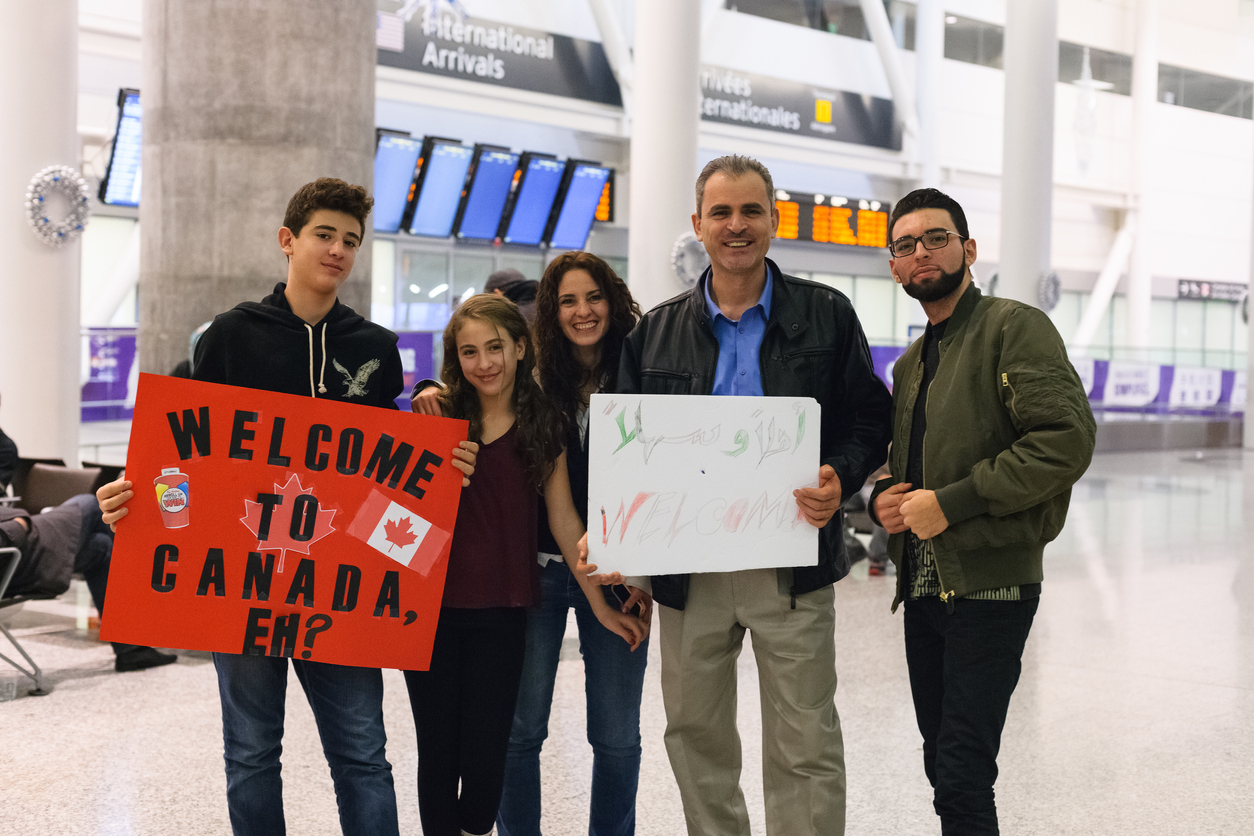Canada must continue to modelling its refugee efforts on its response to the Syrian crisis

The arrival of Syrian refugees in Canada a few years ago is a well-known “feel-good” story. Images of Justin Trudeau greeting refugees at the airport and private citizens stepping up as sponsors are etched in the minds of many Canadians. The compelling stories of particular refugees and families who suffered hardship and became successful, such as Tareq Hadhad of Peace by Chocolate in Antigonish, N.S., and Abdulfatah Sabouni of Aleppo Savon in Calgary, have been showcased as wonderful examples highlighting the resilience and entrepreneurial spirit of Syrian newcomers. But what about the other refugees who arrived with them, most of whom are living outside the media spotlight?
Canada acted quickly to take in 40,000 Syrian refugees in a short span of time between November, 2015, and December, 2016, and it is important to know how they are doing today (and not just through the success stories captured by the media). This is the question that the Environics Institute sought to answer in a national study with a representative sample of Syrian refugees on their lived experience since arriving in Canada.
The answer is that Syrian refugees who arrived in the first wave are doing remarkably well. Our study shows that most Syrian refugees who arrived in 2015 and 2016 have established new lives for themselves and their families in Canada, largely overcoming the initial hurdles that face all refugees (and especially those who come from societies with different languages and cultures).
The research shows that most are supporting themselves financially and have achieved functional fluency in English or French. Their children are doing well in school, they feel accepted by other Canadians and identify strongly as Canadian, and are active members of their local communities. These refugees, having had only a few years to create new lives in a foreign place, are notably optimistic about the future for themselves and their children.
Not everyone is doing equally well and many continue to face challenges, most notably with employment and under-employment, along with other immigrants who find their native credentials of little value in the Canadian workplace. Achieving financial security and accessing affordable housing are issues for some refugees, as they are for many Canadians. And many of these refugees miss having family nearby and struggle to become comfortable with an unfamiliar culture.
But the big picture is positive. Canada rose to the occasion through an unprecedented effort by governments, civil society and citizens, to open the country and make it home for Syrians fleeing a horrendous humanitarian crisis. And these refugees are now contributing to their communities and the country in important ways. Only now are other countries taking our lead, with the U.S. announcing a similar program just last week.
It is important to remember the tragic story of Alan Kurdi, a two-year-old Syrian boy pictured lying face down on a Mediterranean beach in 2015, which helped spark the Canadian response to the Syrian refugee crisis. Alan’s story continues to serve as a powerful reminder of the dangers and hardships facing many refugees, and how a country and its people can respond in a meaningful way. We did so once before on a large scale, in the late 1970s, when Canada stepped up to accept more than 60,000 people fleeing war and persecution in Southeast Asia.
These examples demonstrate that Canadian society – not just our governments – has both the interest and the capacity to get directly involved in making this country a welcoming refuge. Canada was the first country to make it possible for private citizens and faith-based institutions to sponsor refugees.
Our research highlights the essential role that private sponsors played in Syrian refugees’ successful resettlement. And we know from one of our other studies that many Canadians across the country – estimated to be around four million – are interested in getting directly involved in helping refugees in this way. Our governments can and should do whatever they can to enable and support this goodwill.
Doing so requires a more robust level of focus and effort. The scale of support provided to Syrians has not been sustained, with subsequent waves of refugees now arriving from Afghanistan and elsewhere. The effort put into Syrian resettlement, compounded by the protracted COVID-19 pandemic, has pushed government agencies, settlement support services and private sponsors to their limits.
There is much to be learned from our recent experience in welcoming Syrian refugees, and we now have the opportunity – and responsibility – to repeat this accomplishment on a sustainable basis. Canadian institutions and citizens stepped up in a big way to welcome Syrians. Let’s find a way to make this an enduring feature of our country’s future.
Michael Adams is the founder and president of the non-profit Environics Institute for Survey Research
Jobran Khanji is the Community Outreach Coordinator for the Institute's Syrian Refugee Lived Experience Project
Keith Neuman is a Senior Associate with Institute
Like what you're reading? With our bi-monthly e-newsletter, you can receive even more with the latest details on current projects, news, and events at the institute.
Subscribe